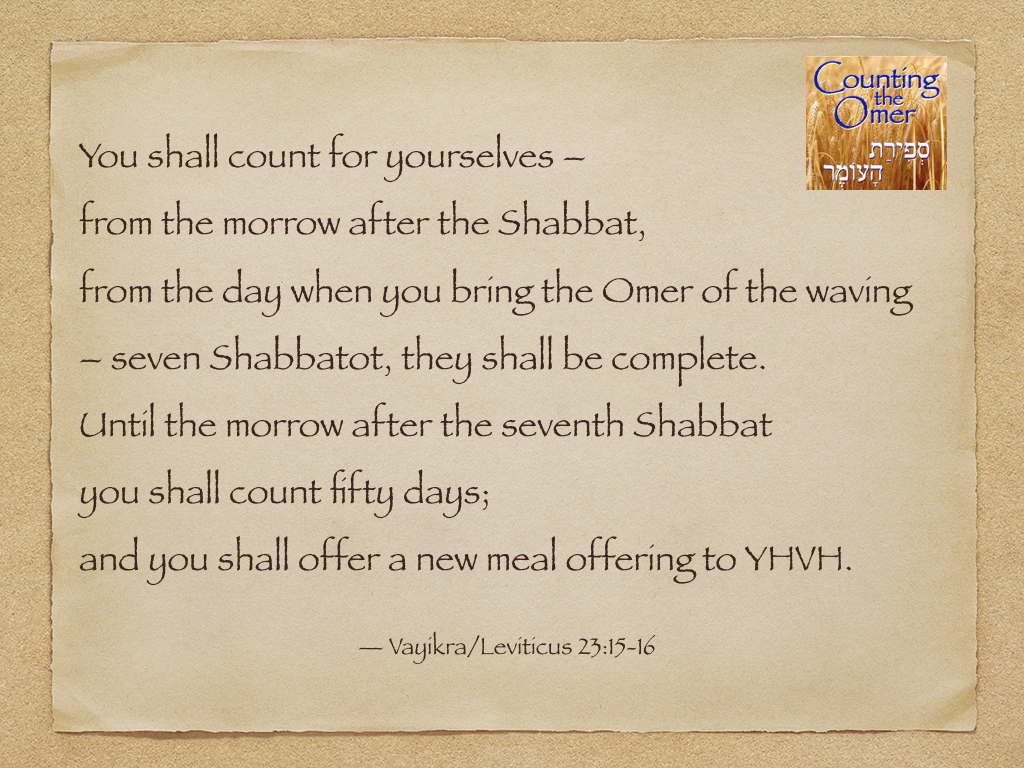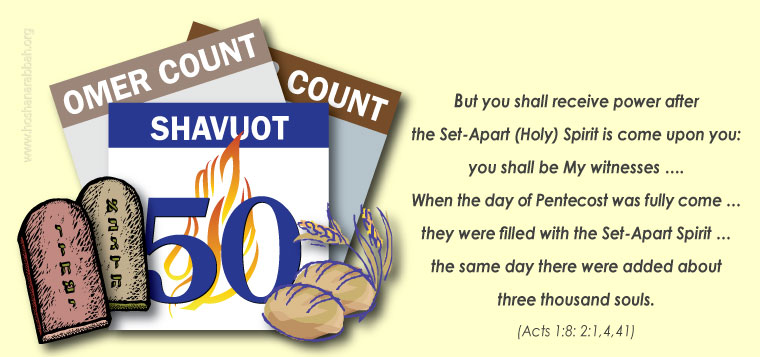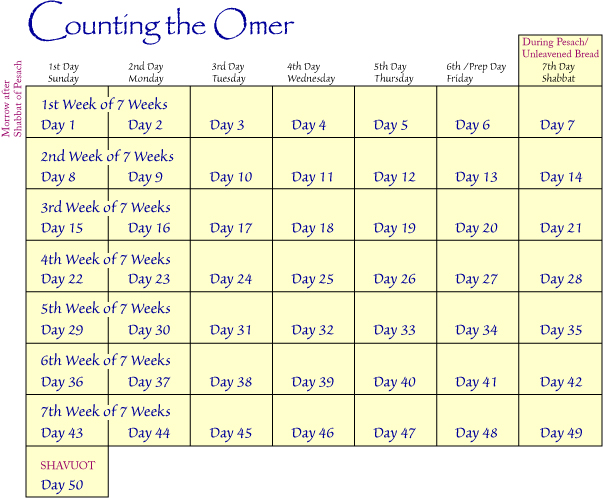A (Re)New(ed) Covenant Involving YHVH Writing Torah on Our Hearts
Long ago Jeremiah prophesied that YHVH would make a new (or renewed) covenant being with his people Israel, which would involve both houses of Israel (Judah and Ephraim, or, prophetically speaking, the Jews and the Christians), and that he would write his Torah on their hearts.
Behold, the days come, saith YHVH, that I will make a new covenant with the house of Israel, and with the house of Judah: Not according to the covenant that I made with their fathers in the day that I took them by the hand to bring them out of the land of Egypt; which my covenant they brake, although I was an husband unto them, saith YHVH: But this shall be the covenant that I will make with the house of Israel; After those days, saith YHVH, I will put my law in their inward parts, and write it in their hearts; and will be their Elohim, and they shall be my people. And they shall teach no more every man his neighbour, and every man his brother, saying, Know YHVH: for they shall all know me, from the least of them unto the greatest of them, saith YHVH: for I will forgive their iniquity, and I will remember their sin no more. (Jer 31:31–34)
Contextually, in the verses surrounding this prophecy, we discover some other important details.
Verse 27, The houses of Judah and Israel were to be mingled throughout the beast (heathen) nations of the world as punishment for breaking their covenant with YHVH that they made with him on Shavuot (the Feast of Pentecost) at Mount Sinai (Exod 19–20, 24).
Verse 28, At some point in the future, YHVH’s punishment of Israel for breaking their covenant and their resulting exile among the gentile nations will come to the end. He will rebuild and restore the nation of Israel.
Verses 29–30, Whereas in times past, Israel was punished as a collective nation for their sins when they disobeyed YHVH and were similarly blessed when they obeyed him, now each person will be cursed or blessed for his own sins. Salvation is more of an individual matter now.
Verses 31–33, YHVH promises to make a renewed covenant with the two houses of Israel at some time in the future (from Jeremiah’s perspective). It will be different from the covenant he made with Israel at Sinai in two major ways:
Though it will be a covenant with Israel collectively (both houses), it also will be made with individuals.
He will deal with the heart of each individual Israelite when he writes his Torah on their hearts.
Verse 34, This renewed covenant will involve mercy and forgiveness (grace). It will involve a personal relationship between each person and YHVH (“they shall all know me…”).
Verses 35 and 37, As the sun, moon, stars, the sea, and expanse of the heavens and the earth exist, so YHVH will renew his Torah covenant with Israel. The words of Yeshua in Matthew 5:18 are reminiscent of the this prophecy. Not one jot or tittle (Heb. yud or tag, which are the smallest elements of the Hebrew alphabet) of YHVH’s Torah will pass as long heaven and earth still exist.
Verse 36, The very survival of the nation and people of Israel (and hence the fulfillment of the covenants YHVH made with Abraham), is dependent on YHVH regathering and restoring Israel. If YHVH doesn’t bring this to pass, then YHVH is a liar and his Word is a lie and there is no hope for the world! This cannot be!
This was fulfilled during the time of the writing of the Testimony of Yeshua (New Testament). The author of Hebrews talks about this in Hebrews 8.
But now, Yeshua the Messiah has attained a more excellent public service, since He is the Mediator of a more excellent covenant, one that was legislated with better promises than the former. (Heb 8:6)
The “better promises” is everything that Yeshua taught about salvation and eternal life as a person puts their trust in him. These better promises he taught during his life and ministry, and formalized this at his last supper through the communion elements. It is all these glorious promises to which the whole Levitical and sacrificial system pointed, which, as the author of Hebrews makes clear, was fulfilled in Yeshua.
If the first covenant had been faultless, there would have been no need to look for a second one. Finding fault with THEM He said, “Look, the days are coming, says Yehovah, when I’ll enact a New Covenant with the descendants of Israel, and with the descendants of Judah. It wont be like the covenant that I made with their ancestors during the time when I took them by the hand and brought them out of the land of Egypt, because they didnt remain loyal to My covenant, and I rejected them, declared Yehovah. But this is the covenant that I’ll enter into with the descendants of Israel after that time, says Yehovah; I’ll put My Torah in their minds—inscribing it on their innermost thoughts. I’ll be their Aloha, and they’ll be My people. No one will teach doctrine to their fellow citizens [evangelize], or a friend, or ask: “Do you know Yehovah” [witness to anyone], because they’ll all know Me, from the youngest of them to the oldest. I’ll be merciful regarding their wrongful behavior; and I’ll no longer remember their sins.” When He [Yeshua] mentioned, a New Covenant, He was saying that the first one was old and about to be repealed; and what was then old and failing, was about to disappear. (Heb 8:7–13, GV)
Other Scriptures Relating to the Renewed Covenant and the Heart of Man
The Tanakh is full of scriptures that speak of the renewed covenant where YHVH will write his Torah on the hearts of men. For example, in Jeremiah 32:40, YHVH reiterates his promise to make an everlasting promise with Israel. This new covenant will involve his putting his fear in their hearts. As a result, they will no longer depart from him.
And I will make an everlasting covenant with them, that I will not turn away from them, to do them good; but I will put my fear in their hearts, that they shall not depart from me.
The following is a list of other scriptures that talk about the Torah being written on men’s hearts.
- Deut 30:6, And YHVH thy Elohim will circumcise thine heart, and the heart of thy seed, to love YHVH thy Elohim with all thine heart, and with all thy soul, that thou mayest live.
- Ps 37:31, The law of his Elohim is in his heart; none of his steps shall slide.
- Ps 40:8, I delight to do thy will, O my Elohim: yea, thy law is within my heart.
- Isa 51:7 Hearken unto me, ye that know righteousness, the people in whose heart is my law; fear ye not the reproach of men, neither be ye afraid of their revilings.
- Ezek 11:19, And I will give them one heart, and I will put a new spirit within you; and I will take the stony heart out of their flesh, and will give them an heart of flesh:
- Ezek 36:25, Then will I sprinkle clean water upon you, and ye shall be clean: from all your filthiness, and from all your idols, will I cleanse you.
- Eze 36:26* A new heart also will I give you, and a new spirit will I put within you: and I will take away the stony heart out of your flesh, and I will give you an heart of flesh.
- Ezek 36:27, And I will put my spirit within you, and cause you to walk in my statutes, and ye shall keep my judgments, and do them.
- Jer 31:1, At the same time, saith YHVH, will I be the Elohim of all the families of Israel, and they shall be my people.
- Jer 24:7, And I will give them an heart to know me, that I am YHVH: and they shall be my people, and I will be their Elohim: for they shall return unto me with their whole heart.
- Jer 30:22, And ye shall be my people, and I will be your Elohim.
- Jer 32:38, And they shall be my people, and I will be their Elohim:
- Ezek 11:20, That they may walk in my statutes, and keep mine ordinances, and do them: and they shall be my people, and I will be their Elohim.
- Ezek 37:27, My tabernacle also shall be with them: yea, I will be their Elohim, and they shall be my people.
The Testimony of Yeshua Speaks of YHVH’s Torah-Law Being Written on Men’s Hearts Also
- Rom 7:22, For I delight in the law of Elohim after the inward man.
- Rom 8:2–8, For the law of the Spirit of life in Messiah Yeshua hath made me free from the law of sin and death. For what the law could not do, in that it was weak through the flesh, Elohim sending his own Son in the likeness of sinful flesh, and for sin, condemned sin in the flesh: That the righteousness of the law might be fulfilled in us, who walk not after the flesh, but after the Spirit. For they that are after the flesh do mind the things of the flesh; but they that are after the Spirit the things of the Spirit. For to be carnally minded is death; but to be spiritually minded is life and peace. Because the carnal mind is enmity against Elohim: for it is not subject to the law of Elohim, neither indeed can be. So then they that are in the flesh cannot please Elohim.
- 2 Cor 3:3, Forasmuch as ye are manifestly declared to be the epistle of Messiah ministered by us, written not with ink, but with the Spirit of the living Elohim; not in tables of stone, but Messiah in fleshy tables of the heart.
- 2 Cor 3:7–8, But if the ministration of death, written and engraven in stones, was glorious, so that the children of Israel could not stedfastly behold the face of Moses for the glory of his countenance; which glory was to be done away: How shall not the ministration of the spirit be rather glorious?
- Heb 8:10, 16, For this is the covenant that I will make with the house of Israel after those days, saith YHVH; I will put my laws into their mind, and write them in their hearts: and I will be to them a Elohim, and they shall be to me a people…This is the covenant that I will make with them after those days, saith YHVH, I will put my laws into their hearts, and in their minds will I write them.
Yeshua Is Mediator of the Renewed Covenant
On Passover, Yeshua initiated the renewed covenant.
- Matt 26:28, For this is my blood of the new testament, which is shed for many for the remission of sins.
- Mark 14:24, And he said unto them, This is my blood of the new testament, which is shed for many.
- Luke 22:20, Likewise also the cup after supper, saying, This cup is the new testament in my blood, which is shed for you.
- 1 Cor 11:25, After the same manner also he took the cup, when he had supped, saying, This cup is the new testament in my blood: this do ye, as oft as ye drink it, in remembrance of me.
- Heb 12:24, And to Yeshua the mediator of the new covenant, and to the blood of sprinkling, that speaketh better things than that of Abel.
- Heb 7:22, By so much was Yeshua made a surety of a better testament.
- Heb 8:6, But now hath he obtained a more excellent ministry, by how much also he is the mediator of a better covenant, which was established upon better promises.
- Heb 8:8, For finding fault with them, he saith, Behold, the days come, saith YHVH, when I will make a new covenant with the house of Israel and with the house of Judah:
- 1 Tim 2:5, For there is one Elohim, and one mediator between Elohim and men, the man Messiah Yeshua;
- Heb 13:20, Now the Elohim of peace, that brought again from the dead our Lord Yeshua, that great shepherd of the sheep, through the blood of the everlasting covenant,
- Heb 9:15, And for this cause he is the mediator of the new testament, that by means of death, for the redemption of the transgressions that were under the first testament, they which are called might receive the promise of eternal inheritance.
On Pentecost in Acts chapter two, Yeshua sealed his covenant on the hearts of his disciples by giving them his Holy or Set-Apart Spirit.
As YHVH made a marriage covenant with our fathers at Mount Sinai some 3500 years ago, so he promised to make a new covenant with the houses of Israel in the future.
I will make a new covenant with the house of Israel and with the house of Judah … I will put my Torah in their inward parts, and write it in their hearts and will be their Elohim and they shall be my people. (Jer 31:31 and 33)
Yeshua initiated this covenant with the descendants of the children of Israel during his last supper when he said to his disciples, “Likewise also the cup after supper, saying, This cup is the renewed covenant in my blood, which is shed for you.…for the remission of sins.” (Luke 22:20 and Matt 26:28). It was the mission of Yeshua’s disciples to bring as many people into that renewed covenant—a spiritual marriage covenant—as possible. We enter into this renewed covenant with Yeshua who is the Living Torah and our Heavenly Bridegroom, when we do as the Paul says in Romans 10:9 and 10 and confess with our mouths the Master Yeshua and believe in our heart that Elohim has raised him the dead.
Romans 10:13 goes on to say, “Whoever shall call upon the name of the Master shall be saved.” Yeshua also said, “Whosoever therefore shall confess me before men, him will I confess also before my Father which is in heaven.” (Matt 10:32).
Yeshua then sealed that renewed covenant when he sent his Spirit on the day of Pentecost to write his Torah on the hearts of his people. Likewise, when a new believer confesses Yeshua as his Lord and Savior and subsequently receives the Holy Spirit, this person is sealed spiritually as Ephesians 1:13–14 says,
And you were also included in Messiah when you heard the word of truth, the gospel of your salvation. Having believed, you were marked in him with a seal, the promised Holy Spirit, who is the deposit guaranteeing our inheritance until the redemption of those who are Elohim’s possession—to the praise of his glory.
The Counting of the Omer: Antitype and Type
In the roughly 49 days between Passover (Pesach) and the Feast of Pentecost (Chag haShavuot), a momentous spiritual dynamic occurs. This period of time is comprised of forty-nine days or seven days of seven weeks (i.e. the counting of the omer), which is seven times seven—the biblical number for complete or full perfection. After the counting of the omer, Scripture then commands us to add one day, which brings us to Shavuot or Pentecost (Lev 23:15–16). Fifty is the biblical number for the jubilee picturing redemption from the enslavement to this world.
Historically, the children of Israel were redeemed from their sins by the blood of the lamb on the first Passover in Egypt. At this time, YHVH betrothed himself to Israel (Exod 6:7). YHVH then led them out of Egypt into the wilderness, and on Shavuot he married them at Sinai (Exod 24 cp. Ezek 16:8; Jer 2:2; 31:32). At the same time, YHVH gave them his Torah, which was their ketubah or marriage vows.
Shavuot is a picture of the bride of Yeshua the Messiah coming into full maturity spiritually and coming to marriageable age. She has gone from being a spiritual child and slave in Egypt to becoming the fully mature spiritual bride and queen of the King of the universe.
At the time of Yeshua, he betrothed himself to both houses of Israel on Passover. On Pentecost, he then sent his Spirit, the Comforter, as a seal of this covenant. He hasn’t married this bride (that’s you and me) yet—something which occurs at his second coming. Rather, he betrothed himself to her (his disciples) at the last supper and then subsequently to each new believer when they come into spiritual relationship with him. In the mean time, he has placed his betrothed bride in a 2000 years-long wilderness exile outside the land of Israel where she is getting ready for him (Rev 19:7–9); she is learning to fall in love with him by keeping his Torah commands (John 14:15) and by receiving his Torah (instructions in righteousness) into her heart, so that she will become the sinless bride with whom he wants to spend eternity in the New Jerusalem.
In the end times, his bride (comprised of some from both the Christian and the Jewish people) have to one degree or another left YHVH spiritually and gone off into the world. In the end times at Yeshua’s second coming, he’s going to bring his bride out of the wilderness of Babylon the Great (called the Second Exodus), which is a worldwide antichrist system, and they will repent of their Torahless ways and return to him. We are now getting ready for this day.
Understanding the prophecies of the Bible that speak of these end-time events, and understanding who the principal players are (the two houses of Israel or the Jews and the Christians) is the key to insuring that we will be ready for our Messiah when he returns for us—that we’ll be wise and not foolish virgins, who have our lamps full of oil (the Torah and Spirit of Elohim, see Matt 25:1–13).
The Feast of Weeks or Pentecost (Shavuot), along with Passover (Pesach) and the Feast of Unleavened Bread (Chag HaMatzot) and the Feast of Tabernacles (Sukkot) are three times each year when YHVH commands his people, his bride-to-be, to gather together before him to rehearse their upcoming wedding and vows renewal and otherwise to celebrate their relationship with their Heavenly Bridegroom and commune with him (Exod 23:14–17).







